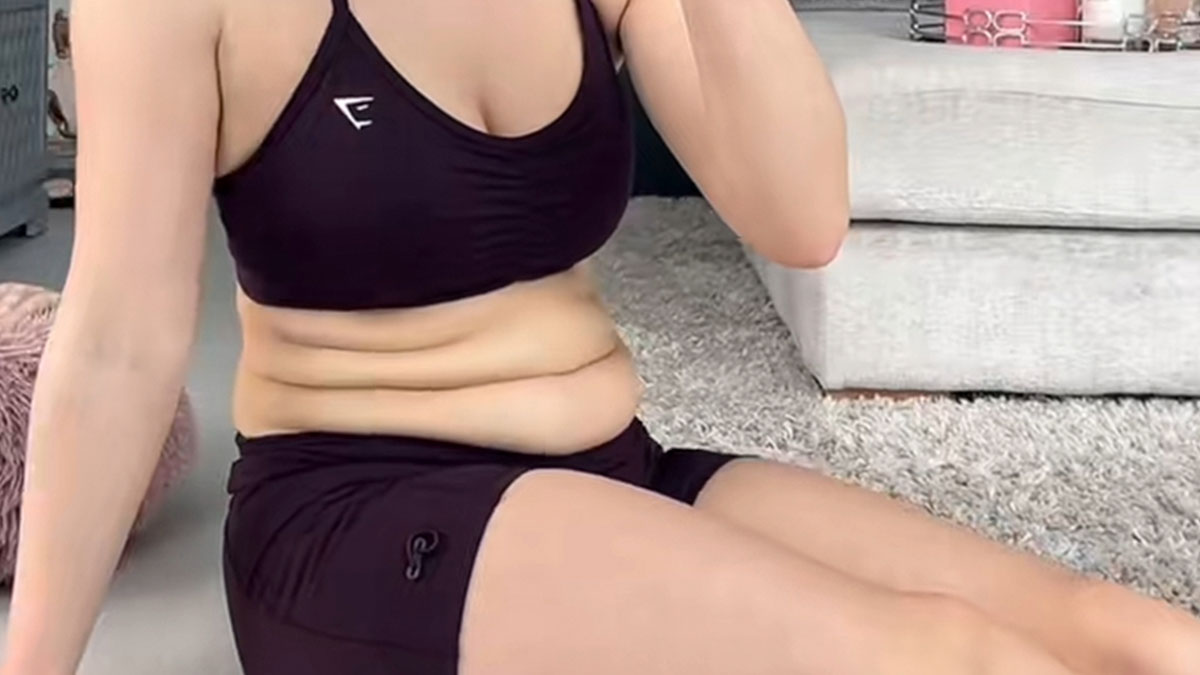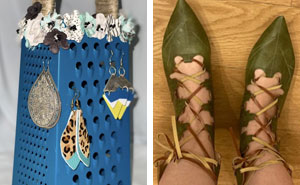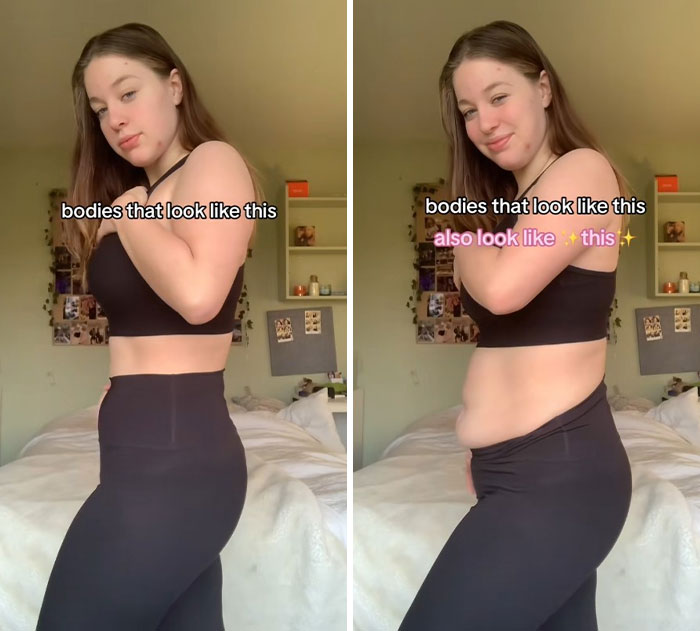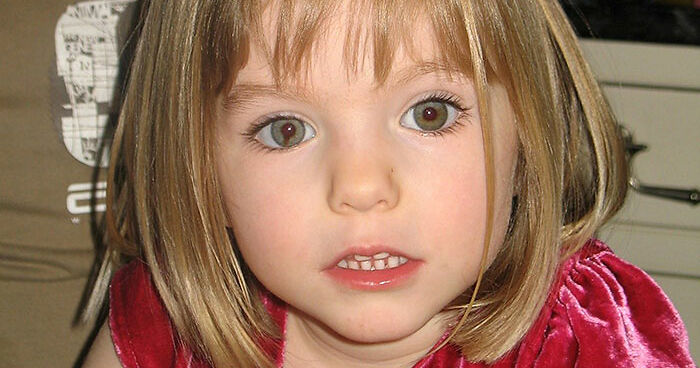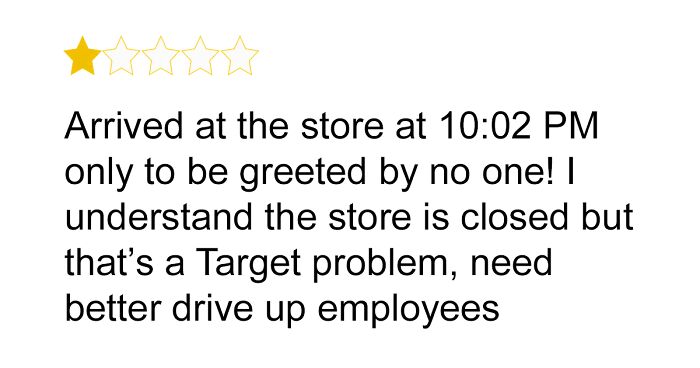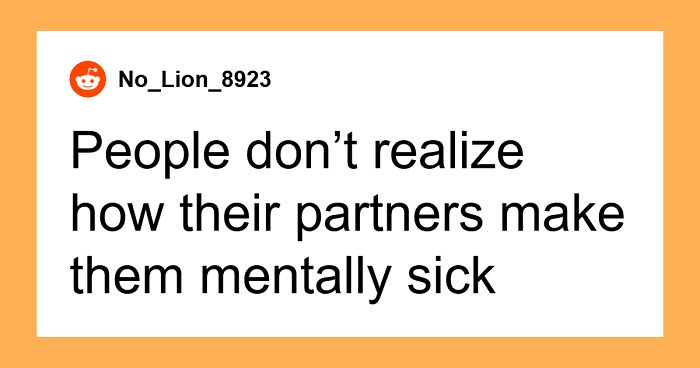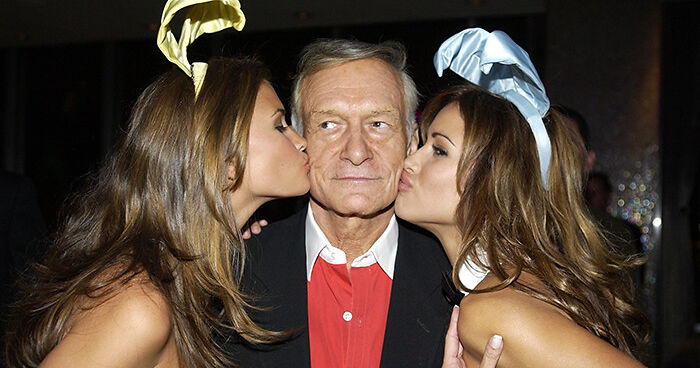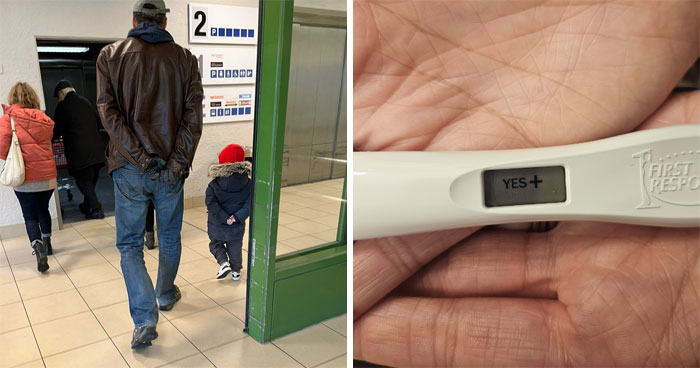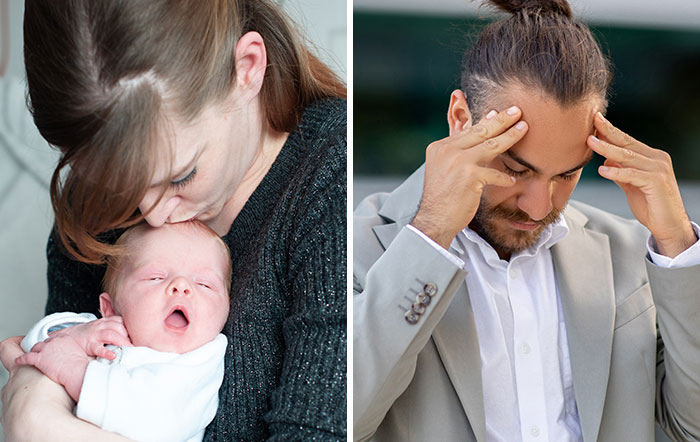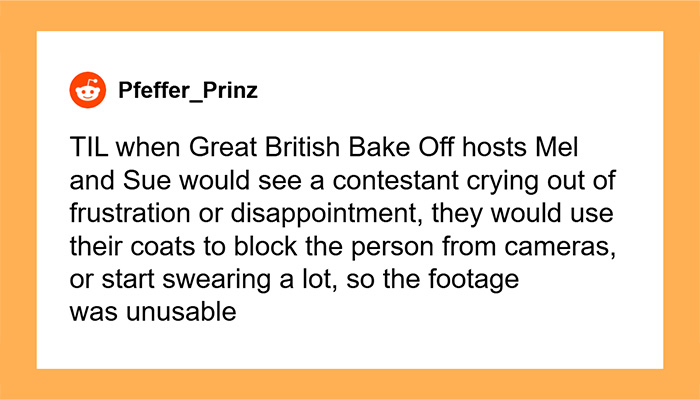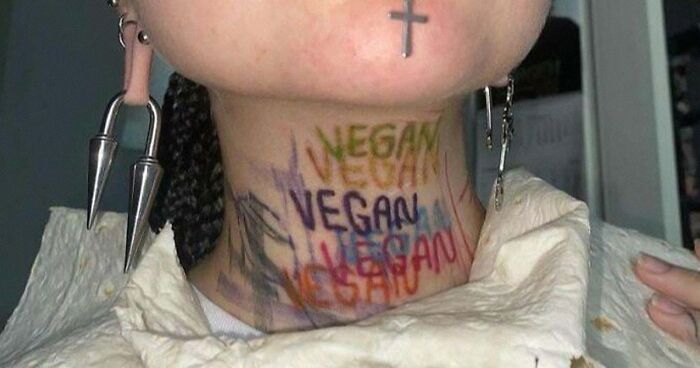Bodies come in all shapes and sizes, and as long as people are healthy and happy, they shouldn’t change a thing about them; even if social media trends are telling them otherwise.
Some women have recently turned to TikTok—or “Skinny-Tok” as some call it—to counter the flood of “perfect” bodies (as if that existed in real life) and the trend of people trying to make themselves look as skinny as possible, whether that means hitting a certain pose or editing their posts. A number of users posted pictures and videos of themselves with no filters, editing, or posing, showing that natural bodies are beautiful, and unique, and there’s nothing wrong with not looking like the “perfect” people on the internet, because in most cases, they’re not even real.
On the list below, you will find not only the pictures but also Bored Panda’s interviews with one of the women on the list, content creator Sara Puhto, as well as with professor in the Department of Allied Health Sciences at the University of Connecticut, Dr. Sherry Pagoto, and certified sexuality counselor and educator with the New Jersey Center for Sexual Wellness, Dr. Melanie Davis, all of whom were kind enough to share their thoughts on body positivity and the role social media plays regarding it.
This post may include affiliate links.
Scrolling through social media nowadays can feel somewhat disheartening. “Perfect” bodies in ads, bikini pictures of people with “perfect” shapes living “perfect” lives, and very few pics of love handles, stretch marks, or laughter wrinkles – the things that make us human.
Unsurprisingly, such a newsfeed can make other people feel like they have to follow suit – only post polished or edited pictures of themselves, hitting the perfect pose, looking flawless. And the sad reality is that many people do.
A study from 2021 found that an astonishing 90% of young women use a filter or edit their pictures before posting. Why do they do that, you might wonder? Well, according to the study, mostly to even out their skin tone, reshape their jaw or nose, shave off weight, brighten or bronze their skin, or whiten their teeth.
To make matters worse, young women tend to compare themselves to the often unrealistic beauty standards they see online. Talking about the findings, the researcher behind the paper, Professor Rosalind Gill, from City St George's, University of London (formerly City, University of London), noted that young people reported feeling overwhelmed by images that are “too perfect.”
While many people, especially young women, feel the need to edit their pictures before uploading them, a seemingly increasing number of strong and beautiful females don’t. The women on this list, as well as numerous other content creators, don’t fear showing their perfectly imperfect bodies, and do that with pride.
We spoke with one of the content creators among them, TikToker Sara Puhto, whose video of “edited vs real” went viral on TikTok last year. She was kind enough to tell us more about her story and the message she wants to share on social media.
“I used to be a fitness content creator back in 2016 and realised that I was posing, flexing, and sucking in all the content that I would post with my body. I was sharing my workouts and ‘what I eat in a day’ videos and realised that I was comparing myself to other content creators who were also posting similar content.
“I would compare my body to theirs and assume that they looked flexed all the time, even when they were relaxing their bodies. That’s when I decided to share my relaxed body next to my posed, flexed and sucked-in body to show the ‘reality’ behind my Instagram posts. It felt really rewarding and helpful to not only me but to my audience, so I kept posting content similar to that since 2016-2017 and haven’t stopped since.”
Puhto continued to share that after a while, she realized that she had an eating disorder and a problematic disordered relationship with working out, and that’s when she started her journey toward healing.
“I now have a healthy relationship towards food and working out and have found a balance that is sustainable for me,” she told Bored Panda. “I think posting my body acceptance and body neutral content was almost like having a public diary of my healing process and sharing my inner thoughts and feelings while recovering publicly. Which I don’t regret one bit, as it’s so beautiful to know that others have healed and started their own healing journeys through the help of my content, which means the world to me.”
According to Puhto, social media posts showing women embracing their bodies of all shapes and sizes play an incredibly important role. “They challenge the narrow beauty standards we’ve been fed for so long and make space for real, diverse bodies to be seen, accepted, and celebrated.
“When we share posts that highlight stretch marks, scars, soft bellies, or aging skin or anything else, we’re saying: ‘This is normal. This is worthy.’ For me, it’s about visibility, representation, and healing,” the content creator said. “When someone sees a body like theirs celebrated instead of hidden, it can shift how they see themselves. That kind of empowerment is powerful and necessary. Social media has the reach to normalise what the world once told us to cover up.”
Professor in the Department of Allied Health Sciences at the University of Connecticut, Dr. Sherry Pagoto, seconded the idea that it’s really important to shed light on different body types on social media. In a recent interview with Bored Panda, the expert noted that there is quite a bit of stigma about certain body types, and this can fuel body image issues and even eating disorders.
“Our society values a certain beauty ideal and it is unachievable for most people,” she said. “Body types that don’t resemble those ideals tend to be stigmatized. Thinness is a body ideal put forth for women, tallness is a body ideal put forth for men. Not having a body that is consistent with those ideals can really have a crushing effect on self-esteem.”
In addition to the damage on one’s self-esteem, unattainable beauty standards can also have a negative effect on people’s health. Take thinness, for instance, the ideal that tends to be put forth for women – it’s not uncommon for it to be advertised as the look of a healthy person. Though in reality, the size of the body might have nothing to do with its health, and trying to become “thin” might even ruin one’s health.
Dr. Pagoto emphasized that the level of how healthy someone’s body is may or may not have anything to do with its size. “Thin people have chronic disease and many overweight people have perfect blood pressure, low cholesterol, and a high level of physical fitness. We can’t really tell how healthy someone is with certainty just by their body size or type.
“From a mental health perspective, it is probably healthier to focus on how healthy your body is than how it looks. Being hyper-fixated on physical appearance can actually lead to a number of unhealthy behaviors like extreme dieting, tanning, purging, and abusing prescription drugs,” the expert added.
It looks like she's lost a lot of weight especially around the middle.
I'd love to have a cute belly like that rather than the...thing I have now.
Talking about ways to deal with unattainable beauty standards and feel more comfortable in your own skin, Dr. Pagoto suggested shifting your focus from how your body looks to what your body can do.
“For example, have you always been a pretty fast runner? Try running again. Have you always been good at hitting a softball? Join a team. Leveraging your body’s strengths and building on them produces self-confidence and makes us feel really good. This shift in focus from form to function gives you an opportunity to deepen your relationship with your body and explore its hidden abilities.”
Asked about what advice she would give to people who want to feel more comfortable in their own skin, Sara Puhto suggested starting by being gentle with yourself. “We’ve all been taught to pick ourselves apart, so unlearning that takes time, but it’s possible to build,” she noted.
“Unfollow anyone who makes you feel ‘less than,’ and fill your social media feed with bodies that look like yours, move like yours, and live fully without shame. Wear the outfit. Take the photos, you’ll want to look back on them when you’re older. Take time to learn to say kind things to yourself, even if it feels weird at first. Confidence doesn’t show up overnight, it’s built through tiny acts of self-kindness. And remember: your body is not the problem. The world’s narrow definition of beauty is.”
While it might seem like a small step to take, unfollowing certain people or pages online can go a long way in the journey toward loving your body. That’s because social media can have an incredibly detrimental effect on one’s views towards themselves, but it can also have an incredibly positive one, depending on what you choose to browse.
“Social media plays a huge role in shaping how we see our bodies. On one hand, it’s been a breeding ground for unrealistic ideals and heavily filtered ‘perfection’ that can really mess with our self-worth. But on the other hand, it’s also become a powerful tool for unlearning that toxicity. It gives people like me, and so many others, a space to show up as we are, unapologetically. When we fill our feeds with diverse, honest, and raw content, it becomes a source of validation, not comparison. Social media can hurt, but it can also be a place of healing. And I want to be on the healing side of it,” the content creator said.
According to Dr. Pagoto, social media is like a stew with every ingredient on the shelf – some of those ingredients are healthy, some are not. Talking about it with Bored Panda, she agreed with the idea that the role it plays in regards to one’s body image is directly related to what the person exposes themselves to on social media and how it makes them feel.
“I recommend ‘mindful social media use,’ which is where you consider how different types of content make you feel and then curate your feed accordingly,” the expert suggested. “This means silencing feeds that make you feel bad about yourself, and paying attention to feeds that uplift you. When we scroll mindlessly, we risk exposing ourselves to content that is just going to wreck our mood. Be sure to tune in to how you are feeling as you are scrolling!”
Sharing her views on social media’s role in regards to beauty standards and body positivity, certified sexuality counselor and educator with the New Jersey Center for Sexual Wellness, Dr. Melanie Davis, noted that social media often exposes people to interesting and talented content creators with diverse bodies, which can increase acceptance and appreciation of different body types.
That’s important to keep in mind, as according to the expert, any type of body can be stigmatized. “We need to teach people that while it’s fine to have personal preferences, it’s egotistical to assume anyone has the authority or aesthetic sense to determine for other people what is aesthetically pleasing or functional. We’d all be better off if we quit caring what others think about our bodies and what we think about theirs. Body shape, size, or ability is usually the least interesting thing about us.
“Stop caring about anyone’s opinion but your own, and try relishing your body. Stand in front of a mirror and thank your body for breathing, for functioning, for existing,” Dr. Davis advised. “The rest is frosting on the cake.”
I'm not seeing a difference between the two inages. She still conforms to our "thin and beautiful" norms in both.
While I appreciate the movement of showing the reality behind social media, most of these women are still acceptably thin. Which, yeah, shows how stupid the filtering trend is, but doesn't do much in showing the true diversity of women's bodies. I realize I'm probably asking too much from a TikTok community, but still, I can dream, can't I?
On one hand, this is a good trend. On the other, these are still conventionally attractive women. It seems like all the body positivity is there and coming from these pretty women, and then once it's an actual overweight person, it's "disgusting" and "your fault" (there are some extreme examples)
While I appreciate the movement of showing the reality behind social media, most of these women are still acceptably thin. Which, yeah, shows how stupid the filtering trend is, but doesn't do much in showing the true diversity of women's bodies. I realize I'm probably asking too much from a TikTok community, but still, I can dream, can't I?
On one hand, this is a good trend. On the other, these are still conventionally attractive women. It seems like all the body positivity is there and coming from these pretty women, and then once it's an actual overweight person, it's "disgusting" and "your fault" (there are some extreme examples)

 Dark Mode
Dark Mode 

 No fees, cancel anytime
No fees, cancel anytime 



